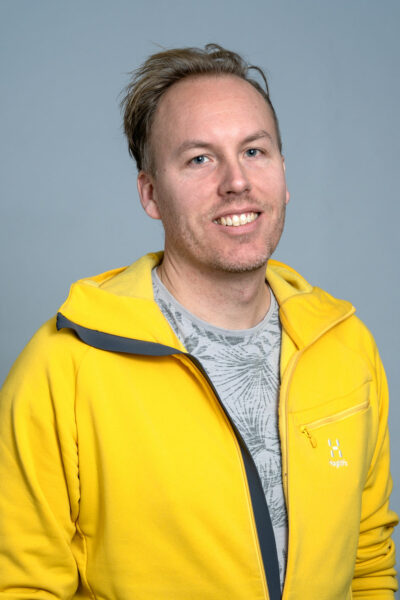Methods developed by Rickard Sandberg, from Karolinska Institutet, have made it possible to dive deeply into the human genome by studying genes in individual cells. This knowledge can help us understand diseases and aid the development of new pharmaceuticals. He will now receive the Torsten Söderberg Academy Professorship in Medicine, which is a donation of ten million Swedish kronor over a five-year period.

Rickard Sandberg is a professor of molecular genetics at Karolinska Institutet, where he is responsible for a research group that focuses on processes that regulate the human genome. This is done at a level of detail that was impossible just a few years ago.
“We used to have to look at many cells clumped together, but these methods, developed by us and others, mean that we can start to study the level of expression of genes in individual cells. We can use this to learn more about what actually happens when genes are activated.”
In total, there are 20,000 protein-coding genes in our DNA. Rickard Sandberg and his colleagues wanted to find out more about how many different patterns there are for turning these genes on and off, and how often this happens. They are now planning to investigate a large number of cell types in humans and mice, mapping their gene activation process for the very first time.
High level of basic research
This is a very high level of basic research, but the results may also be of practical benefit. Another track in their research is to see what happens in the cells and to their genes when a specific pharmaceutical is used, for example. In the future, this knowledge could be used by pharmaceutical companies in the development of new medicines.
“We will be able to systematically affect cells using hundreds of different pharmaceutical substances. These methods will allow us to directly see their effects at a very early stage, how they work and any side effects they have. This could perhaps lead to pharmaceuticals being refined so they work better and have fewer side effects.”
The common theme of these different projects is understanding how the genome is controlled and regulated by our genes, says Rickard Sandberg, who is proud and delighted to have been awarded the Torsten Söderberg Academy Professorship.
“It is an amazing honour, one reason for which is that the Royal Swedish Academy of Sciences decides the recipient. The Professorship allows us to invest in more systematic and substantial projects, and we can explore innovative projects that take more time,” he says.
A photo of the recipient can be downloaded from Karolinska Institutet
FACTS/Torsten Söderberg Academy Professorship in Medicine
The Professorship promotes internationally leading research in the field of medicine by allowing the holders to dedicate themselves to full-time research at a Swedish medical faculty for five years. The Torsten Söderberg Foundation donates ten million Swedish kronor to each professorship. The professorships are reviewed and decided by the Royal Swedish Academy of Sciences following a peer review process.
About the Torsten Söderberg Foundation
The Torsten Söderberg Foundation aims to benefit scientific research, primarily in the field of medicine, economics and law.
Contact
Rickard Sandberg, Professor of molecular genetics, Karolinska Institutet
rickard.sandberg@ki.se
+46-70-271 98 77
Press contact:
Eva Nevelius, Press Secretary at the Royal Swedish Academy of Sciences
eva.nevelius@kva.se
+46-70-878 67 63